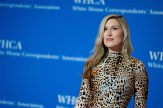Northeastern marks International Day of the Girl by partnering with a U.K. female career empowerment charity
The talk in London with retail fashion expert Jane Shepherdson about Smart Works helped mark the 10th anniversary of the Women Who Empower initiative.
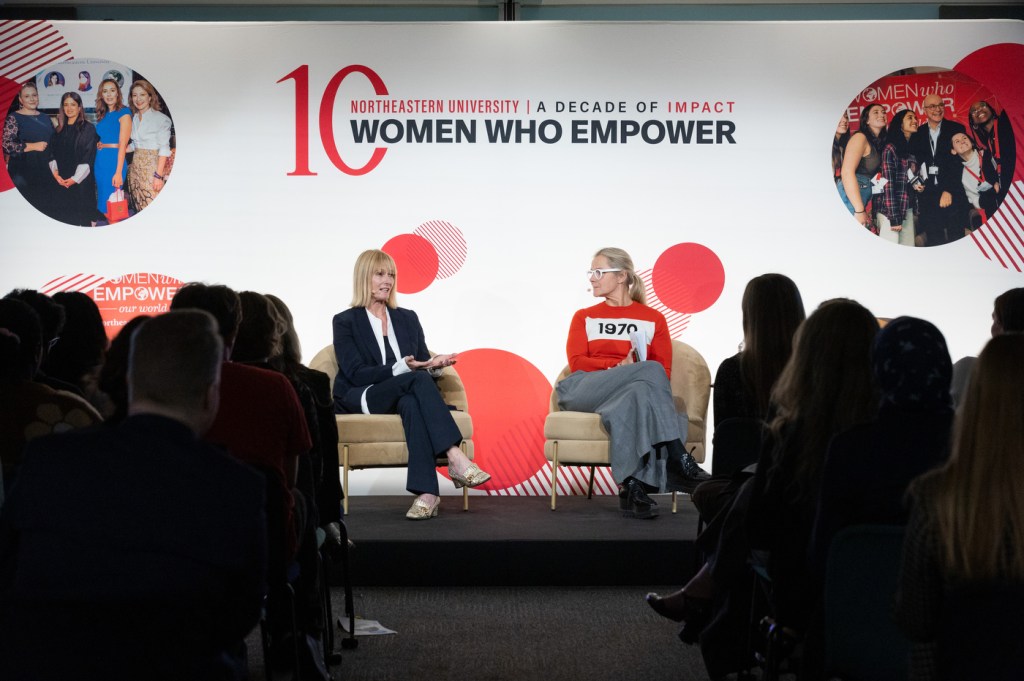
LONDON — Northeastern University marked the United Nations’ International Day of the Girl by shining a light on the work of a U.K. charity that helps prepare women for job interviews.
Diane MacGillivray, senior vice president for university advancement, told the audience how she spent time observing how the charity Smart Works operates as part of activities planned to mark 10 years of Northeastern’s Women Who Empower.
“Being able to go and see it in action was incredible — what an organization, and I’m so excited to be partnering with them” said MacGillivray, who founded Women Who Empower, an initiative designed to build a global, inclusive and dynamic community through events, scholarships, mentorship programs and entrepreneurial initiative.
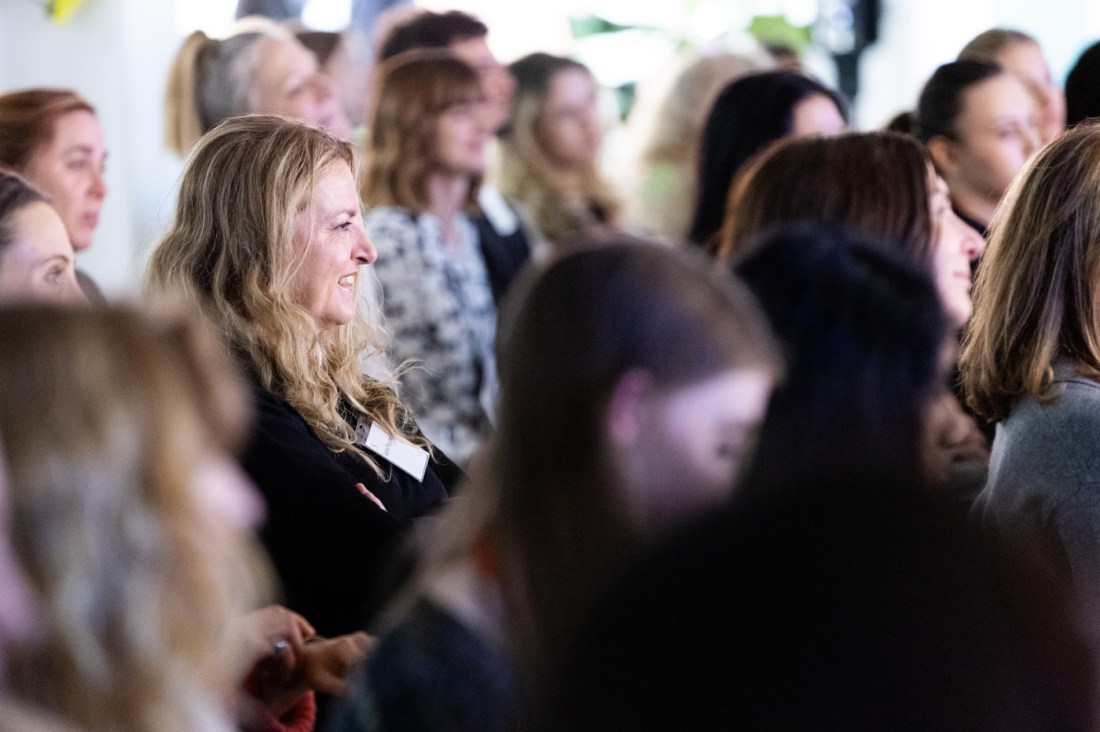
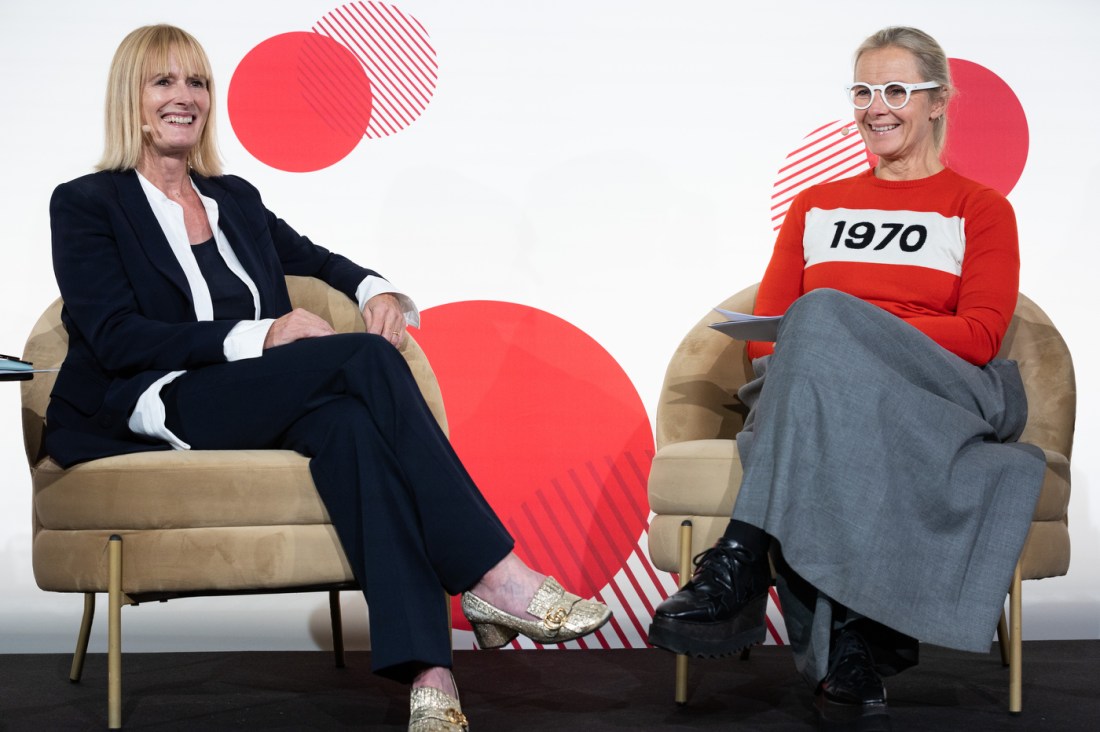
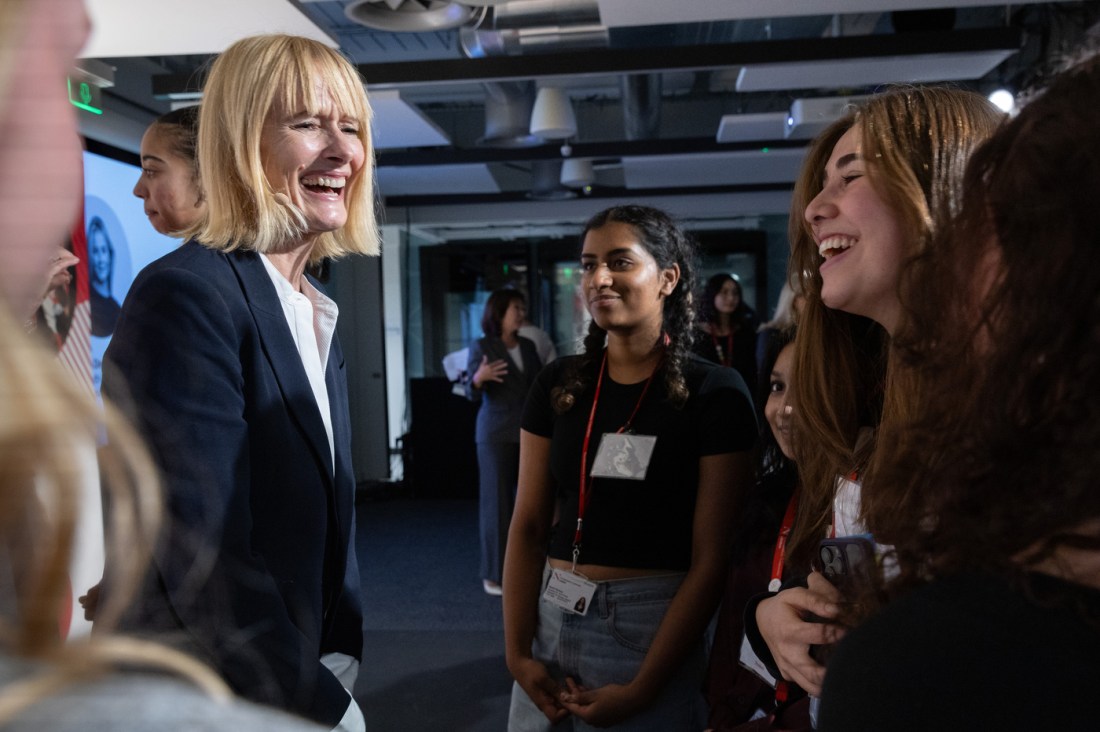
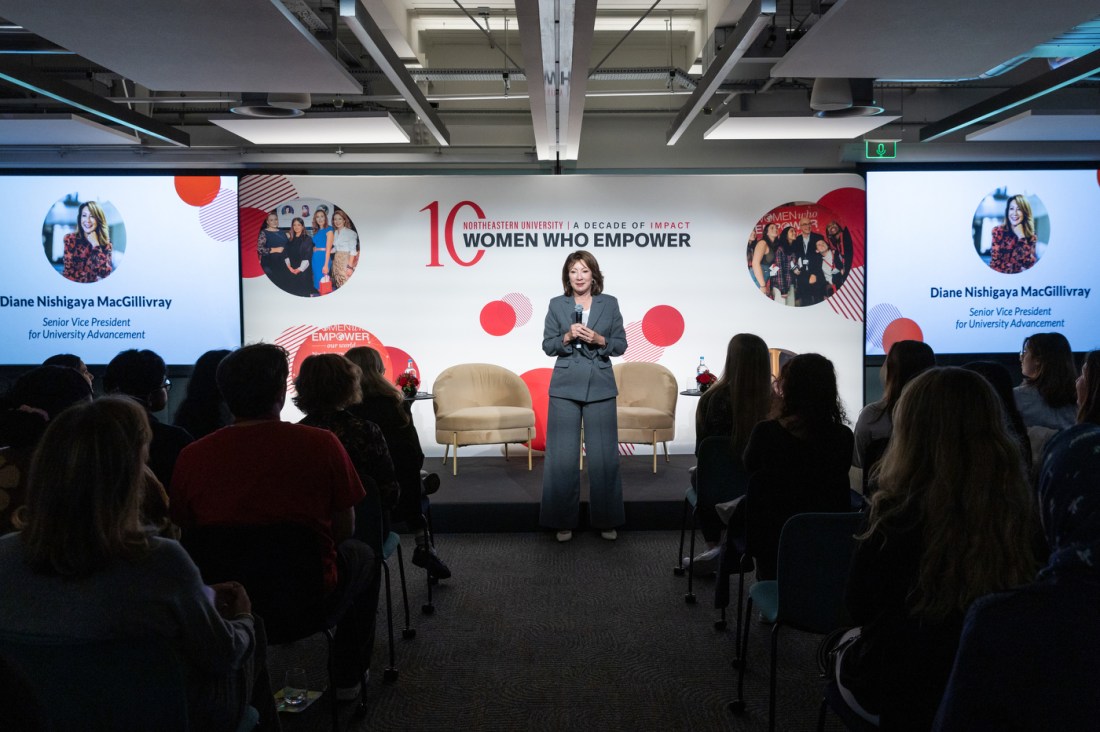
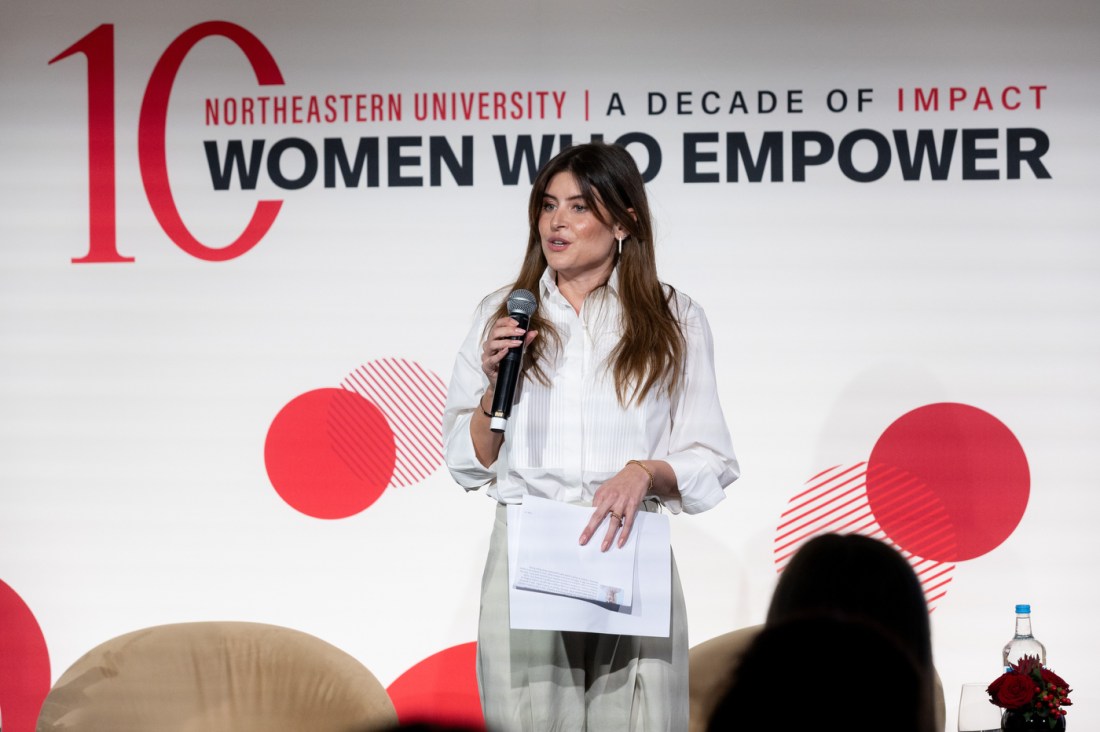
Julietta Dexter, a Northeastern University London Board member, mother to a Northeastern graduate and part of the judging panel for Women Who Empower’s Innovator Awards, said her ties to the university meant she was well aware of how “Northeastern delivers to the world incredible women and girls.”
Dexter, an author and global brand marketing entrepreneur, is also chair of Smart Works, which looks to boost women’s confidence through styling and job coaching in a bid to boost their employment prospects.
In an event held at Devon House on Northeastern’s London campus, Dexter led a fireside-style chat with Jane Shepherdson CBE, a senior figure in the British fashion retail sector, who is also on the Smart Works board.
Smart Works, Dexter explained, “helps women with job interview success” by providing them free access to high-quality clothing and offering interview training.
“A woman will come to us,” Dexter said, “and she will be looked after by two volunteers, and she’ll be dressed beautifully from top to toe for her interview.
“It can be quite daunting to know what to wear for an interview, so Smart Works takes that off your plate. They then have a couple of hours of interview coaching, with more than 60% of our clients getting a job within a couple of weeks of seeing us.”
Featured Posts
Smart Works expects to help 8,500 women find jobs this year and “are on track” to assist 10,000 on an annual basis from 2025, she said.
Shepherdson, who previously was brand director at TopShop and chief executive at Whistles — two U.K.-based fashion outlets that also sell to the U.S. market — personally dresses female clients.
She described how having someone style them can have an empowering effect on the women she sees — some whom she described as being “close to their lowest level” after suffering a series of employer rejections.
“They come out of the changing room and they just look like a totally different person,” said Shepherson, who is chair of the fashion rental platform My Wardrobe HQ.
“It could be a person who has turned up in a pair of leggings and trainers and come out of the dressing room wearing a Burberry suit with a white shirt and a brand new pair of designer shoes, for example, and they look at themselves in the mirror and they almost can’t believe it’s them. They [are thinking] who is this person in front of me? They look so incredible.
“It really shows you the power that clothes have to make us feel great.”
Dexter said a major part of the charity’s work is “removing the prejudices, challenges and barriers that girls still today have to face in being successful in the workplace.” She highlighted how the charity’s objectives chime with those of the International Day of the Girl, which was celebrated on Oct. 11 and is aimed at removing the barriers girls face to securing a bright future.
More than half of the women who visit one of Smart Works’ 11 U.K. centers are from ethnic minority backgrounds, she said, while 14% have a disability.
The conversation between the two fashion experts saw Shepherdson open up about how she found success, having fulfilled her childhood ambition of becoming a fashion buyer.
She recalled how she entered the industry at the “very bottom” and had to supplement her income with a second job working in a pub during the evenings. But Shepherdson said she didn’t care because she was doing what she loved.
“I was in a buying office and it was where I wanted to be. It was really exciting and I just knew that that was my future,” Shepherdson said.
Key to her success was understanding her own limitations and the power of teamwork, she said.
“I had quite a good idea of what it was that people wanted, and I could work very well with a designer and we would come up with collections,” Shepherdson said.
“But I was really aware that my skill base was very limited and that if I was going to get anywhere else, then I needed to bring with me all of these people who had very different skill bases to mine and that, between us as a team, we could be very powerful. But on my own, I really didn’t have enough to forge that way ahead.”
While fielding a host of questions from the audience, Shepherdson and Dexter reflected on the challenges they had faced in the workplace as women.
Dexter, who founded The Communications Store — a brand development and communications agency that worked with the likes of Versace and Victoria Beckham Beauty — talked about how she had to “learn to laugh things off” while working in the PR and fashion industries.
But she said that being a woman in the workplace brought with it benefits and that deploying the traditionally feminine traits of “empathy and compassion” could be a “massive advantage.”
“People used to say to me, ‘So what are your leadership skills?’” she continued.
“And I say, ‘I bring my maternal skills to work.’ And you know, in a C-suite interview, maybe that’s not expected but actually in my career, my care of others has been something that I feel very happy about. I have loved getting to know people throughout my career. It has enriched my life enormously.”









